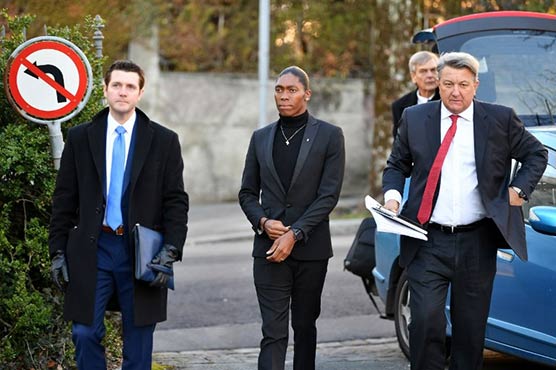UN rights council blasts IAAF over testerone rules for female athletes

It was adopted by consensus by the council's 47 members on Thursday.
GENEVA (AFP) - The UN Human Rights Council has condemned the IAAF s attempt to regulate the testosterone levels of female athletes, as nations unanimously backed the cause of South African runner Caster Semenya.
In a rare intrusion in the world of sport, the United Nations top rights body has said that the International Association of Athletics Federations (IAAF) may be in breach of "international human rights norms and standards".
The South African-led resolution called on governments to ensure that sports organisations "refrain from developing and enforcing policies and practices that force, coerce or otherwise pressure women and girl athletes into undergoing unnecessary, humiliating and harmful medical procedures".
It was adopted by consensus by the council s 47 members on Thursday.
The IAAF is looking to force so-called "hyperandrogenic" athletes or those with "differences of sexual development" (DSD) to seek treatment to lower their testosterone levels below a prescribed amount if they wish to continue competing as women.
World athletics governing body has argued the moves are necessary to create a "level playing field" for other female athletes.
Double Olympic champion Semenya, who has dominated the women s 800 metres over the last decade, has filed a challenge against the IAAF at the Court of Arbitration for Sport. Her testosterone levels are not publically known.
The sports court is due to deliver a decision in the case by the end of April.
The council resolution also called on the UN High Commissioner for Human Rights, Michelle Bachelet, to write "a report on the intersections between race and gender discrimination in sports", with particular focus on sport governing bodies like the IAAF.
South Africa s ambassador to the UN in Geneva, Nozipho Joyce Mxakato-Diseko, told AFP that what the IAAF was attempting amounted to discrimination on gender and "racial grounds".
South Africa has previously accused the IAAF of seeking to violate women s bodies.
Some scientific experts have argued that barring Semenya from competition due to naturally high testosterone levels would be like excluding basketball players because they are too tall.
Mxakato-Diseko compared it to excluding someone from a challenge that requires critical thinking because they had a high IQ.

